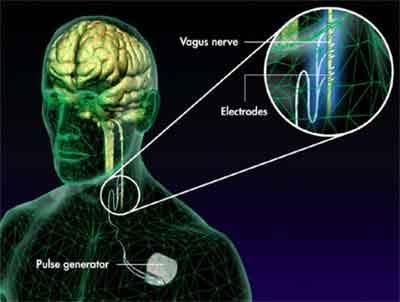- Home
- Editorial
- News
- Practice Guidelines
- Anesthesiology Guidelines
- Cancer Guidelines
- Cardiac Sciences Guidelines
- Critical Care Guidelines
- Dentistry Guidelines
- Dermatology Guidelines
- Diabetes and Endo Guidelines
- Diagnostics Guidelines
- ENT Guidelines
- Featured Practice Guidelines
- Gastroenterology Guidelines
- Geriatrics Guidelines
- Medicine Guidelines
- Nephrology Guidelines
- Neurosciences Guidelines
- Obs and Gynae Guidelines
- Ophthalmology Guidelines
- Orthopaedics Guidelines
- Paediatrics Guidelines
- Psychiatry Guidelines
- Pulmonology Guidelines
- Radiology Guidelines
- Surgery Guidelines
- Urology Guidelines
Brain pacemaker to boost memory in Dementia Pacemaker

Pulses From Electrodes Implanted In Brain Can Help People With Dementia
NYT News Service
Benedict Carey
Well-timed pulses from electrodes implanted in the brain can enhance memory in some people, scientists reported on Thursday, in the most rigorous demonstration to date of how a pacemaker-like approach might help reduce symptoms of dementia, head injuries and other conditions.
The report is the result of decades of work decoding brain signals, helped along in recent years by large department of defence grants intended to develop novel treatments for people with traumatic brain injuries, a signature wound of the Iraq and Afghanistan wars. The research, led by a team at the University of Pennsylvania, is published in the journal Current Biology.
Previous attempts to stimulate human memory with implanted electrodes had produced mixed results: Some experiments seemed to sharpen memory, but others muddled it. The new paper resolves this confusion by demonstrating that the timing of the stimulation is crucial.
Zapping memory areas when they are functioning poorly improves the brain's encoding of new information. But doing so when those areas are operating well - as they do for stretches of the day in most everyone, including those with deficits - impairs the process.
"We all have good days and bad days, times when we're foggy, or when we're sharp," said Michael Kahana, who with Youssef Ezzyat led the research team. "We found that jostling the system when it's in a low-functioning state can jump it to a high-functioning one."
Researchers cautioned that implantation is a delicate procedure and that the reported improvements may not apply broadly.
The study was of epilepsy patients; scientists still have much work to do to determine whether this approach has the same potential in people with other conditions, and if so how best to apply it. But in establishing the importance of timing, the field seems to have turned a corner, experts said.
Experts said the hope is that such sensitive, timed implants could bolster thinking and memory in a range of conditions, including Alzheimer's and other dementia's, as well as deficits from brain injury.

Disclaimer: This site is primarily intended for healthcare professionals. Any content/information on this website does not replace the advice of medical and/or health professionals and should not be construed as medical/diagnostic advice/endorsement or prescription. Use of this site is subject to our terms of use, privacy policy, advertisement policy. © 2020 Minerva Medical Treatment Pvt Ltd